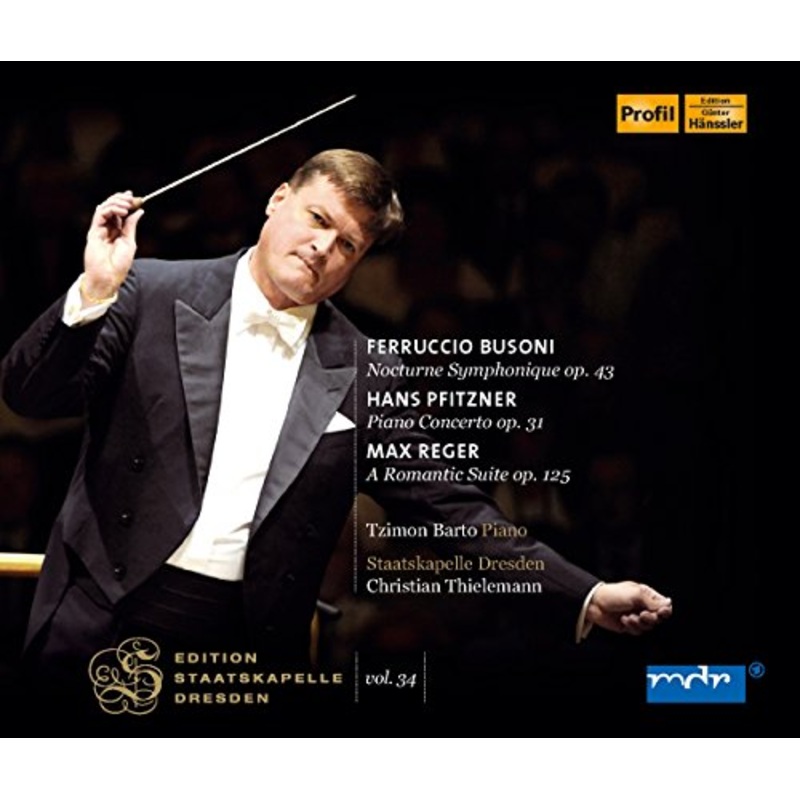
Credits:
BUSONI ; PFITZNER ; REGER
Description:
Thielemann's challenge to the secret works of three great composers of the early 20th centuryThielemann and the Dresden State Orchestra perform works by three great German composers of the early 20th century. The three composers were all very influential at the time, but their styles were completely different, and it is said that Busoni, of Italian descent, and Pfitzner, who was born in Moscow, were not close friends, even though they were composers from different countries. The three composers have an image of being austere composers, but the works featured here are exceptionally accessible. Pfitzner's only piano concerto was written in 1923 and dedicated to Gieseking. Contrary to the pessimism of the Violin Concerto of the same year, this is a large, bright, heroic work. The piano part is a difficult one, with a series of octaves and thick chords in both hands, and the old recording by Gieseking, the dedicatee, is considered the definitive recording.The slow movement, which is like wandering in a deep forest, is fascinating. Zimon Barthes, Eschenbach's favorite pianist, is also a favorite of Thielemann, and the ensemble is exquisite. Busoni's "Symphonic Nocturne" was written in 1912, when he was at the height of his powers. The music is full of dense emotion and seems to be haunted. Reger's "Romantic Suite" is also from 1912, but it is far from Reger's image of massive and grandiose music, and its harp-intensive, Debussy-like French Impressionist atmosphere is surprising. The first and third pieces are identical. The first and the third start from the same place. King International
Tracklisting:
1.Nocturne Symphonique (Elegie No. 2), op. 43
2.Concerto in E flat major, op. 31: Pomphaft, mit Kraft und Schwung
3.Concerto in E flat major, op. 31: {attacca} Heiterer Satz. Ziemlich schnell, in einheitlich atemlose
4.Concerto in E flat major, op. 31: Auberst ruhig, versonnen, schwamerisch
5.Concerto in E flat major, op. 31: (attacca) Rasch, ungeschlacht, launig
